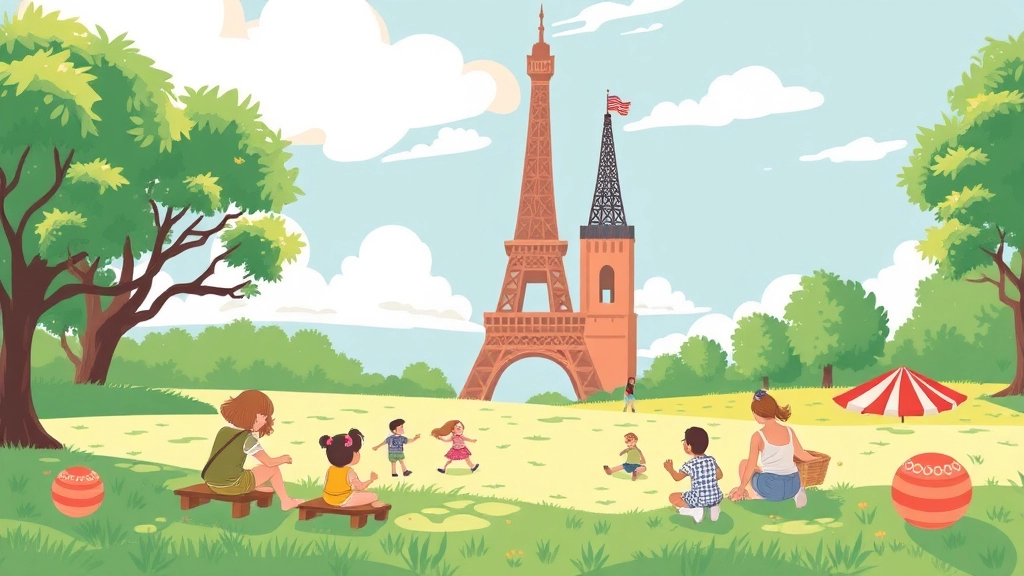Are you considering sending your child to a French summer camp but unsure where to begin?
You’re in the right place. French summer camps offer a unique blend of language immersion, cultural exposure, and adventure, making them an enriching experience for kids of all ages. This article will guide you through the various types of French summer camps, their benefits, popular destinations, and much more, ensuring you make an informed decision for your child’s summer adventure.
From language immersion techniques to cultural activities and excursions, French summer camps provide a comprehensive learning environment that goes beyond traditional classroom settings. We’ll also delve into safety and supervision standards, how to choose the right camp, and real testimonials from past participants. By the end of this article, you’ll have a clear understanding of what to expect and how to make the best choice for your child’s unforgettable summer experience.
Types of French Summer Camps
Alright, let’s dive into the world of French summer camps. If you’re like most parents, you’re probably wondering, “What types of French summer camps are out there for my kid?” Trust me, you’re not alone. I get it; the options can be overwhelming. So, let’s break it down.
Language Immersion Camps
These are the bread and butter of French summer camps. The whole point here is to immerse your child in the French language, making them think, speak, and even dream in French. Here’s what they offer:
- Full Language Immersion: Every activity, from breakfast to bedtime stories, is conducted in French.
- Native Speakers: Instructors and camp counsellors are often native French speakers.
- Interactive Classes: Forget boring grammar lessons. Think games, songs, and conversations that make learning fun.
Adventure and Outdoor Camps
Got a kid who loves the great outdoors? These camps combine language learning with outdoor adventures:
- Hiking and Camping: Your child will be learning French while exploring nature.
- Water Sports: Activities like kayaking and sailing, all while picking up new vocabulary.
- Team-Building Exercises: Think obstacle courses and group challenges, all in French, of course.
Cultural Exchange Camps
These camps focus on cultural immersion as much as language skills. It’s like a mini-study abroad program:
- Cultural Workshops: Cooking classes, art projects, and music lessons that teach French culture.
- Excursions: Visits to historical sites, museums, and local markets.
- Host Families: Some camps offer the option to stay with a French family, giving your child a firsthand experience of French daily life.
Special Interest Camps
Does your child have a particular passion? There’s likely a French camp for that too:
- Sports Camps: Football, tennis, or even fencing, all coached in French.
- Arts Camps: Theatre, dance, and visual arts, all with a French twist.
- Science Camps: Robotics, coding, and other STEM activities, but in French.
Day Camps vs. Residential Camps
- Day Camps: Perfect for younger kids or those not ready for overnight stays. They offer a full day of activities but return home in the evening.
- Residential Camps: These are the full package. Your child stays overnight, fully immersed in the camp environment.
Real Talk: What Parents Worry About
I get it. You’re probably thinking, “Will my child be safe? Will they actually learn French? What if they get homesick?” These are all valid concerns. Here’s the deal:
- Safety: Most camps have strict safety protocols and trained staff.
- Learning: Immersion works. Your child will come back with improved language skills.
- Homesickness: It happens. But with engaging activities and supportive staff, kids usually adjust quickly.
Benefits of Attending a French Summer Camp
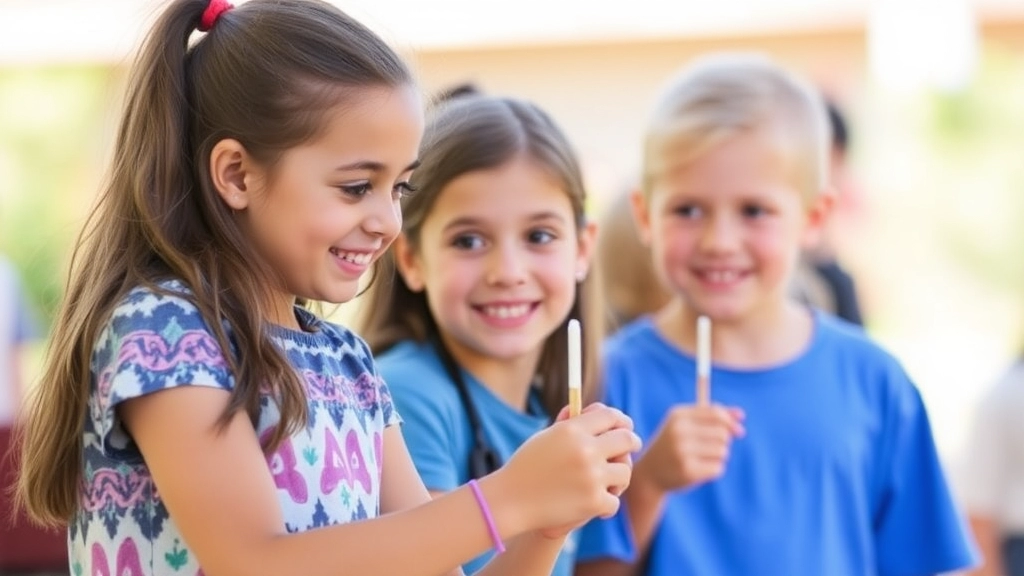
Ever wondered if a French summer camp is worth it?
Let’s break it down.
Why Should Your Kid Attend a French Summer Camp?
Language learning can be tough. But what if it could be fun?
That’s where French summer camps come in. They aren’t just about learning a new language. There’s so much more.
1. Language Immersion
First off, full-on language immersion.
Your kid will be surrounded by French 24/7. It’s like moving to France for a few weeks without the hassle.
- Real Conversations: They’ll be chatting in French all day.
- Quick Progress: Immersion speeds up learning like nothing else.
- Confidence Boost: They’ll feel more comfortable speaking French.
2. Cultural Exposure
Next up, the culture.
French summer camps give kids a taste of French life. They’ll learn about traditions, food, and local customs.
- Cooking Classes: Imagine your kid whipping up a French dish.
- Local Festivals: They might get to join in on local events.
- Art and History: Visits to museums and historical sites.
3. Social Skills
Making new friends is another biggie.
Kids from all over the world attend these camps. It’s a melting pot of cultures and personalities.
- New Friendships: Lifelong bonds often start here.
- Team Activities: Group projects and games build teamwork.
- Independence: They learn to manage on their own.
4. Educational Benefits
It’s not just fun and games. There are real educational perks too.
- Better Grades: Improved language skills can boost school performance.
- College Applications: Looks great on a CV or university application.
- Career Opportunities: Knowing French can open doors in the job market.
5. Personal Growth
Lastly, personal growth.
Being away from home, kids learn to be independent and responsible.
- Problem-Solving: They’ll face new challenges and learn to overcome them.
- Self-Confidence: Achieving goals in a new environment boosts self-esteem.
- Adaptability: They learn to adapt to new situations and people.
Popular Destinations for French Summer Camps
Ever wondered where the best French summer camps are? You’re not alone. Picking the right spot can be tricky, but it’s all about finding a place that offers a mix of fun, learning, and culture. Let’s dive into some of the top destinations that’ll make your decision a breeze.
Why Location Matters
Choosing the right location can make or break the experience. Think about it: you want your child to soak up the language and culture, right? Here are some top spots to consider:
1. Paris â The Heart of France
- Iconic Landmarks: Imagine learning French while gazing at the Eiffel Tower. It’s not just about the sights; it’s about being in the cultural hub.
- Rich History: Museums, art galleries, and historical sites offer endless learning opportunities.
- Vibrant Culture: From cafés to street performances, Paris is alive with the French spirit.
2. Provence â The Scenic Beauty
- Natural Landscapes: Rolling lavender fields and sunny weather make Provence a dream.
- Local Markets: Perfect for practising French with locals and trying delicious cuisine.
- Art and History: Follow in the footsteps of Van Gogh and explore ancient Roman ruins.
3. French Riviera â Sun and Sea
- Beaches: Who wouldn’t want to learn French by the sea?
- Luxury and Leisure: From Cannes to Nice, experience the glamorous side of France.
- Outdoor Activities: Hiking, sailing, and more to keep the energy high.
What Makes a Destination Ideal?
Here’s a quick checklist to decide if a destination is right for your child:
- Cultural Exposure: Is there enough local culture to immerse in?
- Safety: How safe is the area?
- Activities: Are there diverse activities to keep them engaged?
Real Stories, Real Experiences
One parent shared, âSending my daughter to a camp in Provence was the best decision. She not only improved her French but fell in love with the culture.â It’s stories like these that highlight the impact of choosing the right destination.
For more tips on choosing the perfect camp, check out our Ultimate Guide to Kids Summer Camps. And if you’re looking for camps that offer swimming activities, don’t miss our Ultimate Guide to Summer Camps with Pools.
Age Groups and Programs Offered
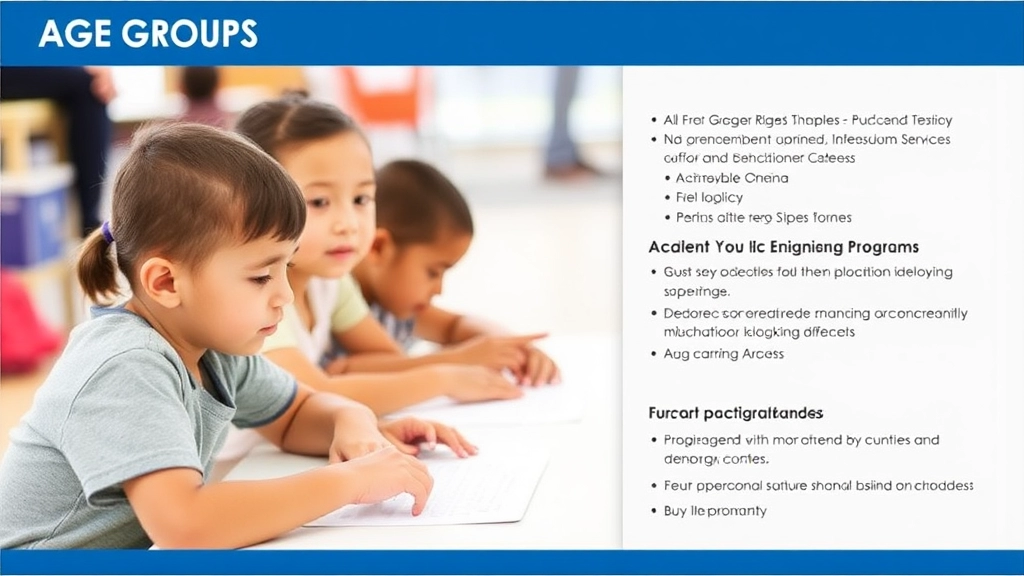
Worried about finding the right camp for your child’s age?
I get it. It’s a legit concern. You don’t want your kid feeling out of place. Or worse, bored.
So, let’s break it down.
Age Groups
French summer camps cater to various age groups.
Why?
Because a 7-year-old and a 16-year-old have different needs, right?
- Youngsters (6-9 years old): These programmes are all about fun and learning. Think games, songs, and basic French phrases.
- Tweens (10-13 years old): This age group gets a bit more structure. They dive deeper into the language with interactive lessons.
- Teens (14-17 years old): Here, it’s all about immersive experiences. Advanced language skills, cultural activities, and even some prep for exams like DELF.
Programmes Offered
Now, let’s talk options.
Because no two kids are the same.
- Language Immersion: Full-on French. All day, every day. Perfect for those who really want to get fluent.
- Sports and Adventure: Combine language learning with activities like hiking, swimming, or even horse riding.
- Arts and Culture: For the creative souls. Think painting, drama, and music, all while speaking French.
- Academic Focus: For the serious learners. Intense language classes, sometimes even prepping for French exams.
Still unsure?
Here’s a quick story.
I had a friend whose daughter, Emma, was 12 and shy. She joined a French summer camp focused on arts and culture. By the end of the camp, she was not only speaking French but also performed in a French play. Talk about a confidence boost!
Choosing the Right Programme
So, how do you choose?
- Know your child’s interests: Are they sporty, artistic, or academic?
- Consider their language level: Beginner? Intermediate? Advanced?
- Check the camp’s focus: Does it align with your child’s goals?
Final tip:
Always read reviews and maybe even chat with past participants.
It’s like getting insider info before making a big purchase.
In a nutshell:
French summer camps offer a range of age-specific programmes.
From fun activities for youngsters to immersive experiences for teens.
Pick the right one, and your child will have an unforgettable summer.
Language Immersion Techniques in French Summer Camps
Ever wondered how your child can truly grasp a new language? Language immersion techniques in French summer camps might just be the answer. Let’s dive into how these camps make learning French a seamless and exciting journey.
Why Language Immersion?
Here’s the deal: traditional classroom settings can only take you so far. The real magic happens when you’re surrounded by the language 24/7. But how do camps pull this off?
Immersion Strategies
- Daily Conversations:
- Campers engage in French during meals, activities, and downtime.
- It’s not just about speaking; it’s about thinking in French.
- Interactive Workshops:
- Hands-on activities like cooking or art classes conducted entirely in French.
- Kids learn vocabulary naturally as they create and explore.
- Role-Playing Games:
- Imagine your child acting out a scene in a French marketplace.
- These scenarios boost confidence and fluency.
- Themed Days:
- Each day might focus on a different aspect of French culture or history.
- This keeps learning dynamic and engaging.
Real-Life Examples
Picture this: a camper named Lucy who was shy about speaking French. After a week of role-playing and themed days, she was chatting away like she’d been speaking French her whole life. That’s the power of immersion.
The Science Behind It
Studies show that immersion is one of the most effective ways to learn a language. It’s all about context and repetition. When kids are constantly hearing and using French, it sticks.
Making It Fun
Let’s be honest, if it’s not fun, kids won’t engage. Camps incorporate games, songs, and storytelling to make learning feel like play.
- Games: Think scavenger hunts with French clues.
- Songs: Learning catchy tunes in French helps with pronunciation and memory.
- Storytelling: Kids create their own stories, enhancing creativity and language skills.
Keeping It Fresh
Camps regularly update their techniques to include the latest in educational trends. This ensures that your child is getting the best, most effective language learning experience possible.
If you’re interested in broader options for your child, check out our complete guide to summer camps and explore some creative summer camp name ideas to get inspired!
Cultural Activities and Excursions
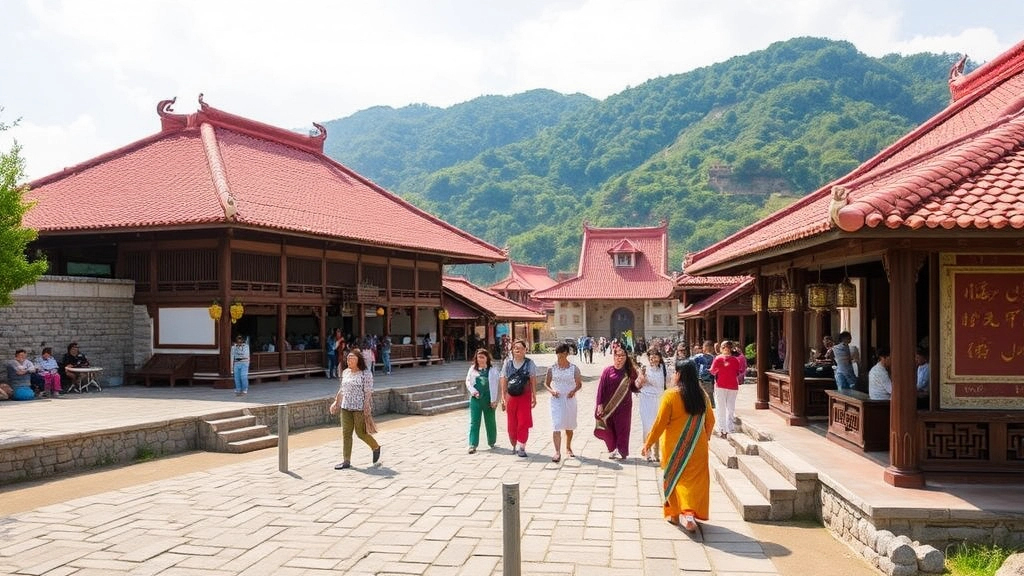
Ever wondered what makes French summer camps so special? It’s the cultural activities and excursions that truly set them apart.
Why do parents rave about these camps? Simple. They offer a blend of learning and fun that’s hard to beat.
Imagine your child exploring the historic streets of Paris, visiting iconic landmarks like the Eiffel Tower, or even taking a cooking class to master the art of French cuisine.
These experiences are more than just fun. They’re life-changing.
What Makes These Activities So Valuable?
- Real-World Language Practice: Kids get to practice French in real-life settings. Ordering a croissant in a local bakery or chatting with a museum guide? That’s language immersion at its best.
- Cultural Exposure: They learn about French history, art, and traditions firsthand. It’s like living a chapter out of a history book.
- Building Confidence: Navigating new places and interacting with locals boosts their confidence. They come back more independent and self-assured.
Types of Excursions You Can Expect
- Historic Tours: Walk through the streets of ancient towns, visit castles, and get a feel of the rich French history.
- Museums and Art Galleries: From the Louvre to smaller, local galleries, kids get to see world-renowned art.
- Nature Trips: Hike in the French Alps, explore the countryside, or relax on the Mediterranean coast.
- Local Festivals: Participate in local festivals and events. It’s a fun way to understand French culture and traditions.
Real Stories from Past Participants
Take Sarah, for example. She attended a French summer camp last year.
She loved the cooking classes. She came back home and whipped up a perfect ratatouille for her family.
Or consider Jake. He was initially shy about speaking French. But after a week of interacting with locals, he became more confident and even made a few French friends.
These stories aren’t just exceptions. They’re the norm.
Why It Matters
These cultural activities and excursions are not just add-ons. They’re integral to the camp experience.
They make learning French fun and engaging. They offer practical, hands-on experiences that textbooks can’t provide.
So, if you’re considering a French summer camp for your child, think about the cultural activities and excursions.
Safety and Supervision Standards
Worried about your child’s safety at a French summer camp? You’re not alone. It’s the number one concern for parents sending their kids away, especially to a foreign country. So, let’s break it down and tackle those fears head-on.
Why Safety Matters
First off, let’s get realâsafety isn’t just a box to tick. It’s the foundation of a great camp experience. If your kid feels safe, they’re more likely to immerse themselves in the activities, make new friends, and soak up the language and culture.
What to Look For:
- Qualified Staff:
- Background Checks: Every staff member should undergo rigorous background checks. No exceptions.
- Certifications: Look for camps where staff are certified in first aid and CPR. Bonus points if they have child psychology or teaching backgrounds.
- Experience: Opt for camps with seasoned staff who’ve been in the game for years. Experience counts.
- Camper-to-Staff Ratio:
- Low Ratios: A lower camper-to-staff ratio means more individual attention and better supervision. Aim for camps with ratios like 1:5 or 1:6.
- Emergency Protocols:
- Medical Facilities: Check if the camp has on-site medical facilities or quick access to local hospitals.
- Emergency Plans: Make sure they have clear, actionable plans for emergencies like injuries, natural disasters, or security threats.
- Supervised Activities:
- Structured Schedules: Look for camps with well-structured daily schedules. Free time is great, but too much unsupervised time can lead to trouble.
- Night Patrols: Ensure the camp has night-time supervision to keep an eye on things while the kids are sleeping.
- Secure Premises:
- Fenced Areas: Camps should have secure, fenced-in areas to prevent unauthorized access.
- Controlled Entry: There should be strict control over who enters and exits the camp premises.
Real-Life Example:
I remember chatting with a parent who was hesitant about sending her daughter to a French camp. She was worried about the language barrier and how her daughter would communicate in case of an emergency. After some digging, she found a camp that offered bilingual staff and had a stellar safety record. Her daughter came back not only safe but also more confident and fluent in French.
Why It’s Worth It:
When you find a camp that nails these safety and supervision standards, you’re not just investing in a holiday for your child. You’re giving them a secure environment where they can grow, learn, and have the time of their lives. And let’s be honest, peace of mind for you is priceless.
For more information on ensuring your child’s camp experience is both fun and safe, check out our essential guidelines for safety. And if you’re looking for a comprehensive packing list to ensure your child has everything they need, our ultimate packing guide has got you covered.
How to Choose the Right Camp for Your Child
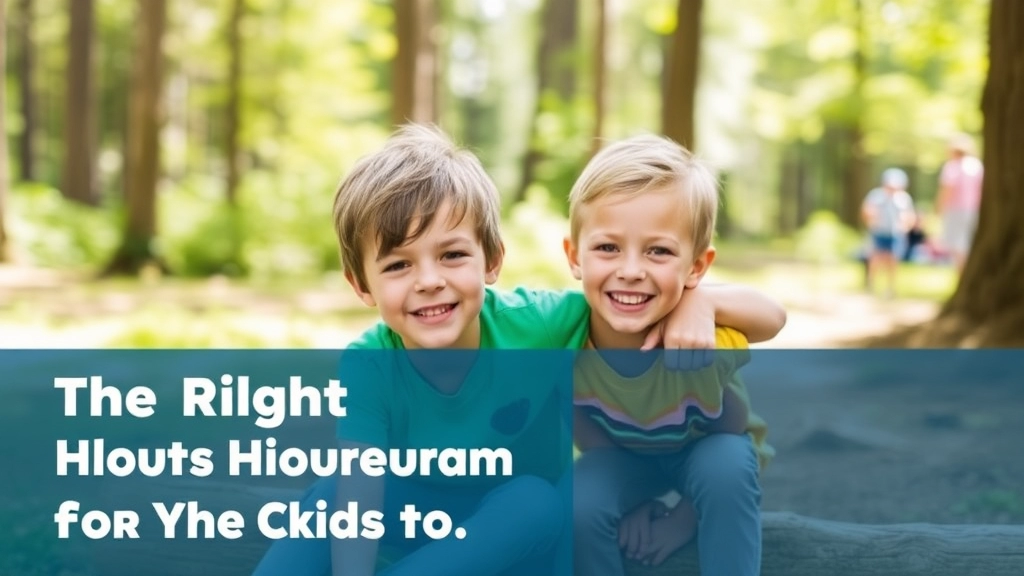
So, you’re thinking about sending your kid to a French summer camp.
But where do you even start?
Choosing the right camp can feel like picking a needle out of a haystack.
Let’s break it down.
What Are Your Goals?
First, what do you want your child to get out of this experience?
- Language skills? Look for camps with strong immersion programmes.
- Cultural exposure? Find camps with plenty of excursions and activities.
- Fun and socialising? Make sure there are loads of group events.
Age and Interests Matter
Not all camps are created equal.
- Age-appropriate programmes: Make sure the camp fits your child’s age group.
- Interests: Does your kid love sports, art, or music? Find a camp that matches.
Safety First
You want peace of mind, right?
- Supervision standards: Check the camper-to-staff ratio.
- Emergency protocols: Ask about their safety measures.
Location, Location, Location
Where is this camp?
- Proximity: Is it easy to get to?
- Environment: City or countryside? What’s your preference?
Budget Considerations
Let’s talk money.
- Cost: What’s included in the fee? Meals, excursions, materials?
- Scholarships: Are there financial aid options?
Testimonials and Reviews
Don’t just take their word for it.
- Read reviews: What do other parents and kids say?
- Ask around: Know anyone who’s been there? Get their take.
Final Thoughts
Choosing the right camp isn’t rocket science, but it does take some thought.
Keep your child’s interests and your peace of mind in focus.
And remember, the right camp can be a game-changer for your child.
Testimonials and Reviews from Past Participants
Thinking about sending your child to a French summer camp but not sure if it’s the right move? You’re not alone. Many parents and kids have the same questions and concerns. So, let’s dive into some real testimonials and reviews from past participants to give you a clearer picture.
Real Experiences, Real Feedback
“Will my child enjoy it?” This is one of the most common questions we get. And to be honest, it’s a valid one. Let’s hear from Emma, a 14-year-old who attended a camp in Nice last summer.
“I was really nervous at first because I didn’t know anyone. But within a day, I had already made friends from all over the world. The activities were so much fun, and I learned more French in two weeks than I did in a year at school!”
“Is it safe?” Safety is a top concern for any parent. Mark, a father of two, shared his thoughts:
“I was worried about sending my kids to a camp in a foreign country. But the supervision was top-notch. The staff was always available, and they had strict protocols for everything. My kids came back not only safe but more independent and confident.”
The Learning Experience
“Will my child actually learn French?” No fluff hereâlanguage immersion is the real deal. Take it from Sarah, a 16-year-old from London:
“I was skeptical about the whole ‘immersion’ thing. But the camp made learning French fun and natural. We spoke French during meals, activities, and even free time. By the end of the camp, I was dreaming in French!”
Cultural Exposure
“What about cultural activities?” Camps aren’t just about learning a language; they’re about experiencing a new culture. James, a 12-year-old, had this to say:
“We went on excursions to museums, local markets, and even a vineyard. It was amazing to see and experience French culture firsthand. Plus, the food was incredible!”
Making Lifelong Friends
“Will my child make friends?” Social interactions are key. Lisa, a mother, shared her daughter’s experience:
“My daughter was shy and reserved. But the camp’s inclusive environment helped her come out of her shell. She made friends she’s still in touch with, even months after the camp ended.”
The Bottom Line
So, what’s the takeaway? French summer camps come highly recommended by past participants. They offer a blend of language learning, cultural immersion, and social activities that are both fun and educational. Still on the fence? Check out more reviews and testimonials on our website. They might just tip the scales for you.
Ready to make a decision? Head over to our registration page to get started. Spots fill up quickly, so don’t wait too long!
Registration Process and Deadlines
Alright, let’s talk about the nitty-grittyâregistration process and deadlines for French summer camps.
Worried about missing out?
I get it. The fear of missing the boat on something great is real. But don’t sweat it; I’ve got you covered.
First things firstâwhen should you start?
Ideally, you want to start looking into this at least six months in advance. Why? Because spots fill up fast, especially for the popular camps.
Here’s a quick breakdown:
- Research Phase (6-8 months before):
- Check Reviews: Look at testimonials and reviews from past participants. You want to know what you’re getting into.
- Compare Camps: Make a list of potential camps. Compare their programs, age groups, and activities.
- Pre-Registration (4-6 months before):
- Contact Camps: Reach out to camps for more detailed information. Ask about their registration process and deadlines.
- Early Bird Discounts: Many camps offer early bird discounts. This is your chance to save some money.
- Registration (3-4 months before):
- Fill Out Forms: Most camps have online registration forms. Make sure you have all necessary documents ready.
- Payment Plans: Some camps offer payment plans. If budget is a concern, this could be a lifesaver.
- Final Steps (1-2 months before):
- Confirm Details: Double-check all your details. Make sure everything is in order.
- Prepare Your Child: Start preparing your child for the adventure. Talk to them about what to expect.
Deadlines to Watch Out For:
- Early Bird Registration: Usually ends 4-6 months before the camp starts.
- Regular Registration: Typically closes 1-2 months before the camp begins.
- Late Registration: Some camps offer late registration, but it comes with added fees and fewer options.
A Quick Story for You:
Last summer, a friend of mine almost missed out on getting her daughter into a fantastic French camp. She started looking too late and found herself scrambling. Luckily, she snagged a last-minute spot, but it cost her extra and caused a lot of stress.
Don’t let that be you.
Plan ahead, follow the steps, and you’ll be golden.
Final Tip:
Set reminders on your phone for key dates. Trust me, it’s a lifesaver.
So, there you have it. The registration process and deadlines for French summer camps, all laid out for you.
Ready to get started?
Don’t wait too long. Those spots go faster than you think.
For more information on how to choose the right camp, check out our guide on STEM summer camps. If you’re looking for budgeting tips, you might find our article on budget-friendly summer camp costs helpful.
FAQs About French Summer Camps
What are the main benefits of attending a French summer camp?
French summer camps offer language immersion, cultural exposure, social skill development, educational benefits, and personal growth. They provide a comprehensive experience that combines learning with fun.
How do French summer camps enhance language skills?
Through full-on language immersion, kids are surrounded by French 24/7, engaging in real conversations, which boosts confidence and accelerates learning.
What cultural activities are included in these camps?
Activities include cooking classes, local festivals, and visits to museums and historical sites. These experiences provide firsthand knowledge of French traditions and customs.
Which age groups are these camps designed for?
Camps cater to different age groups: Youngsters (6-9 years), Tweens (10-13 years), and Teens (14-17 years), each with tailored programs to suit their needs and interests.
What types of programs do French summer camps offer?
Programs range from language immersion and sports and adventure to arts and culture and academic focus, allowing children to choose based on their interests and goals.
How do I choose the right camp for my child?
Consider your child’s interests, language level, and the camp’s focus. Safety, location, and budget are also key factors. Reading reviews and speaking with past participants can provide valuable insights.
What kind of excursions can children expect?
Excursions may include historic tours, visits to museums and art galleries, nature trips, and participation in local festivals, offering a rich blend of learning and adventure.
Are there any real-life success stories from these camps?
Yes, many children return with improved language skills, increased confidence, and unforgettable experiences. For example, participants have successfully engaged in activities like cooking French dishes or performing in plays.
References
-
French Summer Camps: The Ultimate Guide
-
Why You Should Attend a French Summer Camp
-
French Summer Camps for Kids: What You Need to Know

